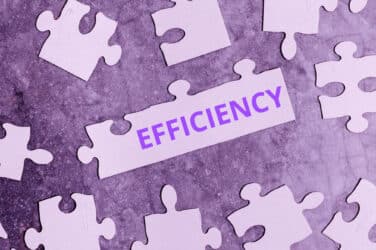The World Federation of Exchanges (“WFE”), the global industry group for exchanges and CCPs, has today published a letter that it has sent to the European Commission and the European Securities and Markets Authority (ESMA), setting out principles that could avoid international regulatory dissonance in the cross-border supervision of central counterparties (CCPs), as the EU sets about adopting rules to implement EMIR 2.2.
The WFE has published a letter that it has sent to @EU_Commission & @ESMAComms, setting out principles to avoid international regulatory dissonance in cross-border supervision of CCPs, related to implementation of EMIR 2.2. Read the full letter here: https://t.co/jvxqByXdNG
— WFE (@TheWFE) August 28, 2019
In today’s letter, the WFE sets out its concerns that ESMA proposals on the implementation of EMIR 2.2 risk unduly fragmenting global markets, increasing costs for end users, and exacerbating tensions in international relations.
The letter includes a number of principles that the WFE believes would support the objective of EMIR 2.2 to concentrate supervisory efforts on Third Country (TC) CCPs that have a systemic importance to the stability of the EU or one of its Member States, while limiting potential negative impacts associated with international regulatory dissonance. These principles are:
Fairness and due process in tiering CCPs: It is essential that the process for determining systemic importance is characterised by predictability, fairness and due process, therefore the process could be enhanced by introducing a series of formal milestones for communication and decision-making – prior to the tiering process, during it, and following designation.
Direct nexus to the EU: The basis for determining that a TC-CCP is a Tier 2 CCP and as such, systemically important to the financial stability of the EU or one of its Member States, should be based on their clearing of financial instruments denominated in EU currencies, relevant to the transmission of EU monetary policy and/or significant exposure to financial institutions domiciled in the EU.
Relative importance of indicators: The WFE recommends that the factors to be considered in the tiering process be substantially reduced, and prioritised with a focus on evaluating the risks posed by a TC-CCP to the financial stability of the EU or its Member States — risks that are “direct, substantial and foreseeable.”
Predictability of determinations: Fewer indicators would also result in greater predictability about the threshold for a Tier 2 CCP, reducing the lack of clarity around determinations. Predictability could be enhanced by the provision of a series of tests or indicative case studies to help guide the market in its understanding of the relevant threshold.
Comparable outcomes: The WFE recommends that the comparable compliance process adheres more closely to the principle of regulatory deference by taking an outcomes-based approach, as opposed to requirement-by-requirement. Moreover, as outlined in previous policy work, the WFE recommends work towards enshrining best practices for such assessments be undertaken at the international level.
Promoting international regulatory coherence is a strategic priority for the WFE and its CCP members; the Federation also commented on the initial legislative proposal for EMIR 2.2.
Ahead of the June 2019 G20 Finance Ministers and Central Bank Governors meeting, the WFE published a statement entitled ‘Financial Stability through International Regulatory Coherence’ which discussed cross-border fragmentation arising from unjustified dissonance between jurisdictions’ financial services regimes. In addition, the WFE is engaging with the CFTC regarding US authorities’ proposals on supervising and exempting non-US CCPs.
Nandini Sukumar, Chief Executive Officer, WFE said: “The WFE recognises that EMIR 2.2 has sought to balance the principle of regulatory deference with authorities’ objectives related to financial stability. We hope that as the implementing rules are made, EU authorities will keep in mind G20 commitments to promote international cooperation in financial regulation, and carefully consider how EU citizens and financial institutions benefit from global securities and derivatives markets.”
Source: WFE






